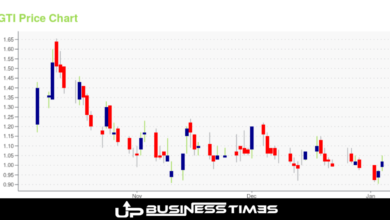How to Navigate1 the C.W. Park USC Lawsuit
Table of Contents
C.W. Park, a former professor at the University of Southern California (USC), made headlines in recent years due to his involvement in a lawsuit against the university. The lawsuit, which alleged discrimination and retaliation, shed light on broader issues within academia, including diversity, equity, and inclusion. In this article, we’ll explore the background of the C.W. Park USC lawsuit, the allegations made, and the implications for higher education.
Background of C.W. Park USC Lawsuit

C.W. Park is a distinguished professor known for his work in marketing and consumer psychology. He joined USC’s Marshall School of Business in 2000 and became a full professor in 2004. Park’s research and teaching were highly regarded, earning him accolades from students and peers alike.
The Allegations
In 2016, C.W. Park filed a lawsuit against USC, alleging discrimination based on his race and national origin. Park, who is of Korean descent, claimed that he was denied promotions and pay raises that were given to his non-Asian colleagues. Additionally,C.W. Park USC Lawsuit Park alleged that he faced retaliation for speaking out against these practices.
Tex9.Net PlayStation has been a game-changer in the world of gaming, offering a wide range of features and capabilities that enhance the gaming experience. In this article, we delve into the world of Tex9.Net PlayStation, exploring its features, games, and what sets it apart from other gaming consoles.
Background of the Lawsuit
C.W. Park, a renowned professor in marketing and consumer psychology, joined USC’s Marshall School of Business in 2000. Despite his accolades and contributions to the field, Park alleges that he faced discrimination based on his race and national origin, claiming that he was denied promotions and pay raises that were given to his non-Asian colleagues. Additionally, Park contends that he faced retaliation for speaking out against these discriminatory practices.
USC’s Response
USC has vehemently denied Park’s allegations, asserting that its decisions regarding promotions and pay are based on merit and performance, rather than race or national origin. The university has stated that it is committed to fostering a diverse and inclusive environment for all faculty members.
Implications for Higher Education
The C.W. Park USC lawsuit has broader implications for higher education, highlighting the importance of creating a fair and equitable environment for all faculty members. The case underscores the need for universities to examine their policies and practices to ensure that they are in line with principles of diversity, equity, and inclusion.
Legal Proceedings
The lawsuit between C.W. Park and USC has been ongoing, with both parties presenting their arguments in court. The case has raised important questions about the treatment of minority faculty members in academia and the need for institutions to address issues of discrimination and retaliation.
USC’s Response
USC denied the allegations of discrimination and retaliation, stating that Park’s claims were without merit. The university argued that its decisions regarding promotions and pay were based on merit and performance, not on race or national origin.
Legal Proceedings
The lawsuit between C.W. Park and USC has been ongoing, with both sides presenting their arguments in court. The case has raised important questions about diversity, equity, and inclusion in academia, as well as the treatment of minority faculty members.
Implications for Higher Education
The C.W. Park USC lawsuit has broader implications for higher education, particularly in the areas of diversity and inclusion. The case has highlighted the need for universities to ensure that their policies and practices are fair and equitable for all faculty members, regardless of their background.
Conclusion
The C.W. Park USC lawsuit has brought attention to issues of discrimination and retaliation in academia. While the case is still ongoing, it serves as a reminder of the importance of diversity, equity, and inclusion in higher education, and the need for institutions to create a supportive and inclusive environment for all faculty members.




